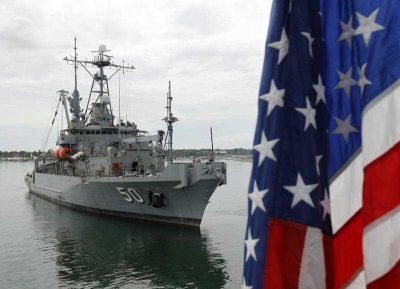In a recent East Asia Forum article, Sam Bateman criticised a decision by the US Secretary of Defense Ashton Carter to develop military plans for more assertive freedom of navigation (FON) operations in the South China Sea (SCS). Specifically, Bateman asserts that ‘there are significant legal, operational and political risks involved with these operations’. While there may be risks associated with conducting FON operations in proximity of China’s man-made islands in the SCS, much of what Bateman states in support of his position is misplaced.

First, Bateman alleges that the US is only concerned with China’s reclamation work in the SCS, which could give the impression that the US has abandoned its position of neutrality in the sovereignty disputes themselves. But, despite China’s assertive behaviour in the SCS over the past 40 years, starting with the 1974 invasion of the Paracels and culminating with its current reclamation activities encompassing more than 2000 acres (800 hectares), the US has maintained its neutrality regarding the sovereignty disputes. At both the US Pacific Command change of command ceremony and the Shangri-La Dialogue in late May, Carter stressed that ‘there should be an immediate and lasting halt to land reclamation by all claimants’.
Second, Bateman questions the legality of FON operations in the territorial sea, stating that ‘diverting from the normal passage route between points A and B just to demonstrate a right of passage’ does not constitute innocent passage. Bateman cites the provisions from the UN Convention on the Law of the Sea (UNCLOS) that innocent passage should be ‘continuous and expeditious’ and should not involve ‘any threat or use of force against the sovereignty, territorial integrity or political independence of the coastal State’.